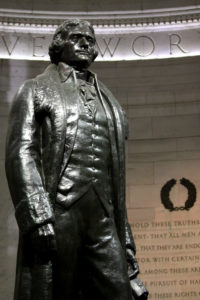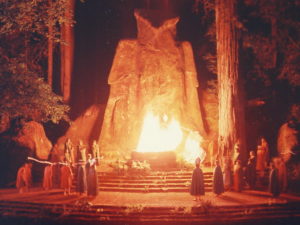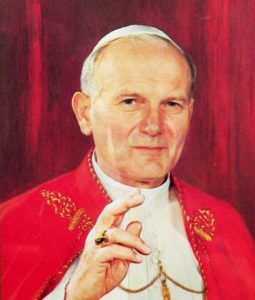Hello, darkness, my old friend
I’ve come to talk with you again
Because a vision softly creeping
Left its seeds while I was sleeping
And the vision that was planted in my brain
Still remains
Within the sound of silence
In restless dreams, I walked alone
Narrow streets of cobblestone
‘Neath the halo of a street lamp
I turned my collar to the cold and damp
When my eyes were stabbed by the flash of a neon light
That split the night
And touched the sound of silence
And in the naked light, I saw
Ten thousand people, maybe more
People talking without speaking
People hearing without listening
People writing songs that voices never shared
And no one dared
Disturb the sound of silence
– Paul Simon, from “The Sound of Silence” (1964)
 Oh my goodness, I just have watched seven of what are supposed to be absolutely cutting-edge videos on dark matter and dark energy, six of them brief, and the seventh a genuine Ted talk that is only three years old. (To see and hear what I just saw and heard, after clicking the word “videos” above, go to the far right and click the pink video link.) That final video of the seven is a genuine Ted talk, mind you! There is no small-x after it. Which means it is a talk that was delivered on a primary Ted stage, so it was given by someone who is prominent in her field, and almost certainly therefore this presenter is an acclaimed theoretical physicist. Tedx stages exist worldwide. Their quality is always respected, but their real value is guaranteed just by the worthies who invite their presenters to speak, and then they stand behind whatever their speakers have said. But a central Ted stage is another matter! In general, only very well-respected speakers are featured there, and what they say must be approved beforehand. So, fasten your seat belts, folks! With a Ted talk beginning, you know that you are about to hear what amounts to up-to-the-year-2022 Scientific Holy Writ on this speaker’s topic of interest. And the title of her big Ted talk is, OMG, “How to Solve the Dark Matter Mystery.” Wow, she claims to be able to solve this whole mystery, which has been eluding even the greatest minds for decades? And her claim must be pretty solid, if the main Ted stage allowed her to use such a sharply definitive title! Our big Ted speaker here surely has the twenty-minute answer to the whole dark-matter problem, solved and ready to be delivered!
Oh my goodness, I just have watched seven of what are supposed to be absolutely cutting-edge videos on dark matter and dark energy, six of them brief, and the seventh a genuine Ted talk that is only three years old. (To see and hear what I just saw and heard, after clicking the word “videos” above, go to the far right and click the pink video link.) That final video of the seven is a genuine Ted talk, mind you! There is no small-x after it. Which means it is a talk that was delivered on a primary Ted stage, so it was given by someone who is prominent in her field, and almost certainly therefore this presenter is an acclaimed theoretical physicist. Tedx stages exist worldwide. Their quality is always respected, but their real value is guaranteed just by the worthies who invite their presenters to speak, and then they stand behind whatever their speakers have said. But a central Ted stage is another matter! In general, only very well-respected speakers are featured there, and what they say must be approved beforehand. So, fasten your seat belts, folks! With a Ted talk beginning, you know that you are about to hear what amounts to up-to-the-year-2022 Scientific Holy Writ on this speaker’s topic of interest. And the title of her big Ted talk is, OMG, “How to Solve the Dark Matter Mystery.” Wow, she claims to be able to solve this whole mystery, which has been eluding even the greatest minds for decades? And her claim must be pretty solid, if the main Ted stage allowed her to use such a sharply definitive title! Our big Ted speaker here surely has the twenty-minute answer to the whole dark-matter problem, solved and ready to be delivered!
 And yet, what she says in that Ted talk is a complete embarrassment, not only to herself, but also to all of mainstream science. What is astonishing is not only that any prominent and up-to-the-minute-in-2022 theoretical physicist might have given such a stupid and embarrassing talk on a prominent Ted stage only three years ago, but also that the Ted people would have allowed her to give it there, and especially under such a presumptuous title. I gather from having watched her talk twice that theoretical physicists have whittled down their study of dark matter to the point where they are trying to figure out what kind of tiny and useless particle actually floats around in and makes up twenty-seven percent of the reality of which we know that all the non-dark matter and energy in existence combined makes up only five percent. Our speaker here goes on record as voting for “axions”, whatever that might be. Not that it much matters. Because of their appalling materialist dogma, modern scientists are trained to seriously believe that it is possible for 25% (or 27%, whatever) of reality to have just naturally evolved to consist of nothing but junk particles with no purpose other than to form matter-based galaxies inside that very much more important (to us) five percent into their shapes, and then to push them farther apart, even though there is nothing else in nature that has developed in that very odd way.
And yet, what she says in that Ted talk is a complete embarrassment, not only to herself, but also to all of mainstream science. What is astonishing is not only that any prominent and up-to-the-minute-in-2022 theoretical physicist might have given such a stupid and embarrassing talk on a prominent Ted stage only three years ago, but also that the Ted people would have allowed her to give it there, and especially under such a presumptuous title. I gather from having watched her talk twice that theoretical physicists have whittled down their study of dark matter to the point where they are trying to figure out what kind of tiny and useless particle actually floats around in and makes up twenty-seven percent of the reality of which we know that all the non-dark matter and energy in existence combined makes up only five percent. Our speaker here goes on record as voting for “axions”, whatever that might be. Not that it much matters. Because of their appalling materialist dogma, modern scientists are trained to seriously believe that it is possible for 25% (or 27%, whatever) of reality to have just naturally evolved to consist of nothing but junk particles with no purpose other than to form matter-based galaxies inside that very much more important (to us) five percent into their shapes, and then to push them farther apart, even though there is nothing else in nature that has developed in that very odd way.
 As we know, very early in the twentieth century, the advent of quantum mechanics so much alarmed the mainstream science gatekeepers, the university departments and the peer-reviewed scientific journals, that they mandated a new dogma for all of mainstream science. And they called their new dogma “the fundamental scientific dogma of materialism”. Yes, in fact they came right out and said it! They don’t presume to use this term now, but back a hundred and fifteen or more years ago, you actually could find those words in print. This whole situation is frankly astonishing. It is little short of incredible! When ordinary matter makes up barely five percent of what even mainstream scientists themselves know actually exists, these gatekeepers were literally setting out to insist that scientists could not study, and humankind would not be allowed to know anything about, fully ninety-five percent of what even the scientists themselves knew at the time, and still know now, actually does in fact exist! Of course, the result of this nonsensical scientific dogma over the past nearly century and a quarter has been unbounded chaos and confusion.
As we know, very early in the twentieth century, the advent of quantum mechanics so much alarmed the mainstream science gatekeepers, the university departments and the peer-reviewed scientific journals, that they mandated a new dogma for all of mainstream science. And they called their new dogma “the fundamental scientific dogma of materialism”. Yes, in fact they came right out and said it! They don’t presume to use this term now, but back a hundred and fifteen or more years ago, you actually could find those words in print. This whole situation is frankly astonishing. It is little short of incredible! When ordinary matter makes up barely five percent of what even mainstream scientists themselves know actually exists, these gatekeepers were literally setting out to insist that scientists could not study, and humankind would not be allowed to know anything about, fully ninety-five percent of what even the scientists themselves knew at the time, and still know now, actually does in fact exist! Of course, the result of this nonsensical scientific dogma over the past nearly century and a quarter has been unbounded chaos and confusion.
 To govern all the scientific research being done in the many decades since the fundamental dogma of materialist atheism was adopted, close to 125 years ago now, certain core assumptions have been made and consistently enforced by the whole scientific community. These assumptions are silly and arbitrary, are generally by now demonstrably wrong, and have held back scientific research severely! To be frank, there are probably more of such nonsensical assumptions that I cannot recall at the moment off the top of my head, or that I don’t even know about; but dealing just with the ones of which I am aware is a hoot and a half, I can tell you that. How ridiculous! And they still exist, even in the twenty-first century, for heaven’s sake! Mainstream scientists are even to this day still required to assume without question that:
To govern all the scientific research being done in the many decades since the fundamental dogma of materialist atheism was adopted, close to 125 years ago now, certain core assumptions have been made and consistently enforced by the whole scientific community. These assumptions are silly and arbitrary, are generally by now demonstrably wrong, and have held back scientific research severely! To be frank, there are probably more of such nonsensical assumptions that I cannot recall at the moment off the top of my head, or that I don’t even know about; but dealing just with the ones of which I am aware is a hoot and a half, I can tell you that. How ridiculous! And they still exist, even in the twenty-first century, for heaven’s sake! Mainstream scientists are even to this day still required to assume without question that:
- Just five percent of what exists is what physicists call normal matter and energy, while the rest is mere particles whose only purpose is to form and support the space occupied by the material celestial bodies in our material universe. That rest is what physicists refer to as the 27% dark matter, and 68% dark energy which give our universe its shape. And, why is it “dark”, pray tell? Well, of course it’s dark because it won’t interact with photons of light, so we can’t see it. We have difficulty even detecting it. But both dark matter and dark energy do indeed affect non-dark matter and energy, so there is mass and energy there, somehow. And we are told that if it were not there to give shape and direction to our universe’s celestial bodies, and to the universe’s gradual expansion, those bodies would drift and dissipate. It is assumed by scientists that because we can’t see or very well detect it, fully ninety-five percent of this universe is in fact made up of nothing of much worth or value to us. Beyond, of course, its obvious use in forming material heavenly bodies into galaxies, and then pushing them apart.
- At death, we each will shut off like a light. Traditional scientists are so very determined to somehow make this lie be true! It was much easier, of course, to keep all the afterlife evidence suppressed before Raymond Moody’s seminal book on near-death experiences, Life After Life, first came out in 1975; and now, there is so much evidence that we survive our deaths, and it is so widely available, that more people than ever before have lost their fear of death. Traditional science still won’t support the investigation of death at all; it simply considers the whole topic to be beneath all possible scientific interest. If any practicing scientist is asked about the reams of good afterlife evidence now available, he will just say something like: “All the so-called afterlife evidence has been thoroughly investigated, and it is valueless. All mediums are charlatans.”
- Life sprang into being from some magical primordial goo. For as long as I have been reading popular science magazines, which is to say for more than half a century, mainstream scientists have been assuming that life sprang into existence when just the right group of chemicals in just the right primordial goo was struck by lightning. Then, Presto! Life! Just simple life at first, which gradually evolved to become ever more complex entities, until very eventually, we had human beings.There are many reasons why this theory doesn’t work, the main one being that even if life got started this way, it couldn’t sustain itself for long enough to form itself into a viable living cell. So more recently, scientists have become fascinated with abiogenesis, or the notion that, even without that lightning strike, just the simple and entirely natural interactions of chemicals in very ancient seas could spontaneously have somehow given rise to simple living cells. That linked video tells us they are trying hard!. So far, however, there is no evidence that any scientific theory for the spontaneous origin of life actually is going to work at all.
- Consciousness is generated by the human brain. Scientists cannot yet satisfactorily define what “consciousness” even is. Most dictionary definitions talk about consciousness in terms of human awareness, and they don’t investigate the notion of animal consciousness very much, if at all. Billions of dollars have been spent in trying to figure out how the human brain produces consciousness; and amazingly, here is a cutting-edge, right-up-to-this-minute article about where the best minds working in this field were in April of this very year, 2025, believe it or not. In other words, only three months ago, the very best minds in this field of consciousness studies were still pretty much absolutely nowhere. And be sure to check out the very latest “news” that is at the bottom of the linked page as well!
 Dark Matter/Energy, Death, Life, and Consciousness. There you have it, my dear ones! Perhaps there are other big scientific topics that we might talk about as well, but for today, let’s settle on just these four huge ones. These are four fundamental areas of basic scientific research that materialist scientific gatekeepers have so severely burdened during the past century and a quarter with their completely arbitrary and utterly absurd materialist dogma that, even to this day, none of these areas can be freely scientifically investigated. So as a result, in the entire past century and a quarter, no progress has been made by any working materialist scientist in any of these fields. Not, at least, by any credentialed scientist who has any hope of pursuing a mainstream career! Even much worse, there are whole related areas to each of these primary fields that also cannot be investigated.Worst of all, if I am still writing, and you are still reading, a thousand years from now, if that materialist scientific dogma is still in place in the year 3025, we will find in that year that scientists will still have made no further discoveries at all for us to write and read about by then in these four areas than they have made so far, today
Dark Matter/Energy, Death, Life, and Consciousness. There you have it, my dear ones! Perhaps there are other big scientific topics that we might talk about as well, but for today, let’s settle on just these four huge ones. These are four fundamental areas of basic scientific research that materialist scientific gatekeepers have so severely burdened during the past century and a quarter with their completely arbitrary and utterly absurd materialist dogma that, even to this day, none of these areas can be freely scientifically investigated. So as a result, in the entire past century and a quarter, no progress has been made by any working materialist scientist in any of these fields. Not, at least, by any credentialed scientist who has any hope of pursuing a mainstream career! Even much worse, there are whole related areas to each of these primary fields that also cannot be investigated.Worst of all, if I am still writing, and you are still reading, a thousand years from now, if that materialist scientific dogma is still in place in the year 3025, we will find in that year that scientists will still have made no further discoveries at all for us to write and read about by then in these four areas than they have made so far, today
And yet, there were at least three twentieth-century mainstreams scientists who did in fact figure a lot of this out! They did it by ignoring those foolish and clueless scientific gatekeepers, and just by freely sharing information, and then by following it where it honestly led them. Those who have been following these weekly missives are going to know what I am about to say, but let’s summarize it again here:
- Max Planck won the 1918 Nobel Prize in physics as the father of quantum mechanics. In 1931 he said, “I regard consciousness as fundamental. I regard matter as derivative from consciousness. We cannot get behind consciousness! Everything that we talk about, everything that we regard as existing, postulates consciousness.” In 1944, Dr. Planck said, “As a man who has devoted his whole life to the most clear headed science, to the study of matter, I can tell you as a result of my research about atoms this much: There is no matter as such. All matter originates and exists only by virtue of a force which brings the particle of an atom to vibration and holds this most minute solar system of the atom together. We must assume behind this force the existence of a conscious and intelligent mind. This mind is the matrix of all matter.”
- Albert Einstein, who needs no introduction from us, was more reluctant than was Dr. Planck to follow all the implications of open-minded consciousness research. But nevertheless, he did at one point say, “Concerning matter, we have been all wrong. What we have called matter is energy, whose vibration has been so lowered as to be perceptible to the senses. There is no matter.” He also said, “Reality is merely an illusion, albeit a very persistent one.” And finally, he explained why mainstream science was even in his own later years such a mess. He said, “No problem can be solved from the same level of consciousness that created it.”
- Nikola Tesla was a polymath so brilliant that Elon Musk chose to name his line of cars after him. And he, too, saw where the truth was heading. He said, “The day science begins to study non-physical phenomena, it will make more progress in one decade than in all the previous centuries of its existence.”
 This ridiculous situation would be laughable, if it were not so tragic! We are talking about the whole modern world, for heaven’s sake! And it has voluntarily handicapped itself this way for more than a century, just because a few scientists long ago were afraid that someone might inadvertently find God? Next week, we will look at our four key areas of forever hopeless twentieth-century materialist research. We will show how all four of them relate directly to consciousness, and also to one another; and therefore, why they never will be solved until we accept that fact. So we will apply the great Dr. Planck’s seminal consciousness insight to solving them. Once we stop treating mainstream science as the holy religion of atheism, and we return at last to allowing scientists to follow the truth fearlessly, wherever it leads, then suddenly everything in science becomes so easy!
This ridiculous situation would be laughable, if it were not so tragic! We are talking about the whole modern world, for heaven’s sake! And it has voluntarily handicapped itself this way for more than a century, just because a few scientists long ago were afraid that someone might inadvertently find God? Next week, we will look at our four key areas of forever hopeless twentieth-century materialist research. We will show how all four of them relate directly to consciousness, and also to one another; and therefore, why they never will be solved until we accept that fact. So we will apply the great Dr. Planck’s seminal consciousness insight to solving them. Once we stop treating mainstream science as the holy religion of atheism, and we return at last to allowing scientists to follow the truth fearlessly, wherever it leads, then suddenly everything in science becomes so easy!
And the sign flashed out its warning
In the words that it was forming
And the sign said, “The words of the prophets are written on the subway walls
And tenement halls
And whispered in the sound of silence”
– Paul Simon, from “The Sound of Silence” (1964)
(Many photos are from Vecteezy.com)










































































